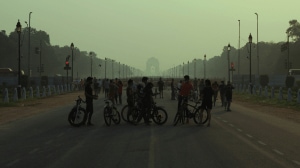Govt unlikely to go for freeze in DA
Central government employees can heave a sigh of relief. The government is unlikely to freeze dearness allowance (DA) as Ministry of Finance...

Central government employees can heave a sigh of relief. The government is unlikely to freeze dearness allowance (DA) as Ministry of Finance (MoF) is against such a move at this juncture.
Though a final decision in this regard will be taken at the October 18 meeting of Prime Minister Atal Behari Vajpayee with chief ministers, a senior finance ministry official told said the ministry is of the view that freezing DA at the existing level of 49 per cent of the basic salary is not possible.
Instead, it is in favour of graded neutralisation of the price rise at the rate of 75 per cent or 50 per cent in place of current 100 per cent.
‘The ministry will present these views at the October 18 meeting,’ he said. The official also stressed that the option of depositing DA in general provident fund (GPF), too, is not feasible as it would result in a higher rate of return.
At present, neutralisation of price rise in case of DA is done on the basis of the formula prescribed by the Fifth Pay Commission. Based on the formula, the DA hike for central government employees comes in two installments—first one in January and the next in July.
The Centre had announced 4 per cent increase in DA in January this year and the July increase was likely to be 3 per cent. However, it is yet to be announced.
The issue of DA freeze came up for discussion at the meeting of State finance ministers with Union Finance Minister Jaswant Singh on September 7. It was decided at the meeting that a final view on the matter will be taken at the prime minister’s meeting with the chief ministers.
The suggestion to freeze DA had emerged for the first time during the deliberations of high-powered committee on fiscal situation of states headed by Singh. The States want the Centre to take a lead in the DA freeze matter as it would then be easier for them to take this step.
The other steps suggested by the committee members to reduce non-plan expenditure include suspension on commutation of pension and reduction in the retirement age from 60 to 58 years. Officials said that a final decision on these issues is also likely to be taken at the October 18 meeting. They added that restoration of the retirement age to 58 years will be difficult as it would result in a huge one-time outgo of Rs 25,000 crore.
Besides these critical decisions, the Centre and States are also slated to give a final shape to the debt-swap scheme at the prime minister’s meeting. As per the current debt-swap scheme proposed by the finance ministry, States will be allowed to retire Rs 25,000 crore high cost debt in a year.
The scheme, to be in place for four years, envisages allowing Rs 10,000 crore open market borrowing of States. Further, States will have to utilise 30 per cent of net small savings (Rs 15,000 crore) to retire high cost debt under the scheme.
The States, however, want, an improvement in the scheme both in terms of time period and quantity.






- 01
- 02
- 03
- 04
- 05

























